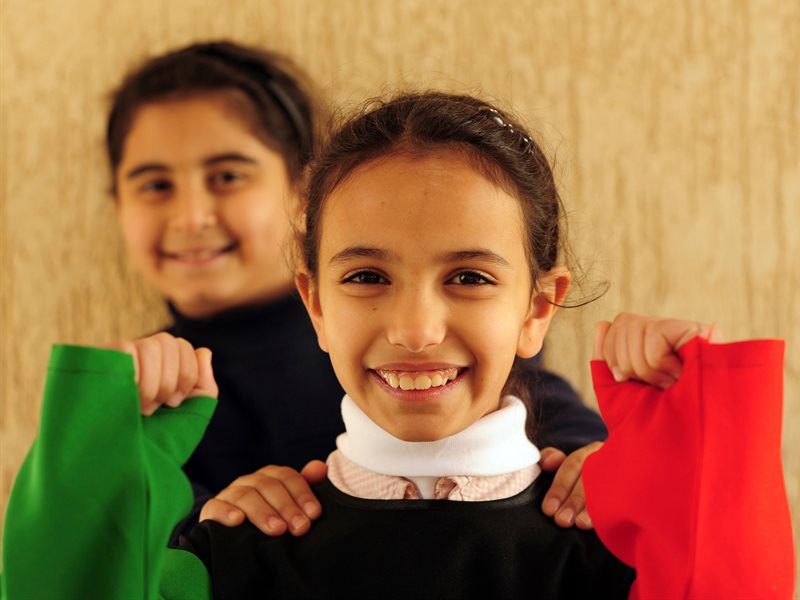
Listen to the recording
Kuwait’s nationality and citizenship rules have been contentious since the country’s independence in 1961. The rightful claim to full citizenship rights in the oil-rich Gulf state is highly restricted and divided along lines of kinship, religion, gender, ethnicity and nationality, leaving the majority of Kuwait’s population excluded from many social privileges. Shaping youth civic identities through education and media messaging has been an important part of the state’s construction of nationalist narratives of Kuwaiti citizenship. While young people’s voices are largely absent from official discourses, they have been creating their own spaces and means of participation. This webinar presented findings from the LSE Kuwait Programme project ‘Empowering Democratic Citizenship through Education: Exploring Rights-Based Approaches to Educational Policymaking in Kuwait’. The study explored the tensions between young people’s perspectives and Kuwaiti official discourses around citizenship identities, rights and participation. Findings are based on focus group discussions and interviews with more than 100 secondary school students and youth activists in Kuwait, as well as an analysis of Kuwaiti media outlets.
Dr Rania Al-Nakib is an Assistant Professor in the Department of Humanities and Social Sciences at the Gulf University for Science and Technology in Kuwait, where she teaches courses in the sociology of education as well as human rights. She helped establish GUST’s Center for Teaching, Learning, and Research in 2016, which works with academics, public and private school teachers and students, as well as administrators in schools and ministries in a range of educational activities. She also worked as a consultant to en.v (a Kuwaiti organization dedicated to fostering civic engagement in the Middle East) on their n-mu programme, developed in partnership with the Eurasia Foundation and the International Research and Exchange Board (IREX) to promote constructive youth engagement in Kuwait. Her research focuses on human rights education and education for democratic citizenship in Kuwait. She is particularly interested in the impact of the hidden curriculum on Kuwaiti students’ citizenship activities and Kuwaiti female students’ gendered experiences of public education. Her PhD from the Institute of Education, University of London was titled ‘Dialogic Universalism and Human Rights Education: A Case Study from Kuwait’. She has an MS in Theoretical Linguistics from Georgetown University and an MEd from Marymount University. Her most recent publication is a chapter in an edited volume, entitled Citizenship and Global Migration: Implications for Theory, Research, and Teaching, published by the American Educational Research Association (AERA). She has also written a report on identity and education for Chatham House, released in 2015, as well as articles in peer-reviewed journals, such as Education Research and the Cambridge Journal of Education.
Dr Sam Mejias is Research Fellow in the Department of Media and Communications at LSE. He conducts multidisciplinary research on the cultural politics of human rights and equity across several connected strands of work in different countries (currently the UK, USA and Kuwait). Before joining the department in 2015, he was an international development research consultant for BBC Media Action, USAID, UNICEF and the Economist, and a consultant on citizenship and human rights projects for the European Commission, University College London and Amnesty International. Dr Mejias holds a PhD in Education from University College London and a Master’s degree in International Educational Development from Columbia University Teachers College.
Abdullah al-Khonaini completed his MA in Power, Participation, and Social Change from the Institute of Development Studies at Sussex University. He co-founded 'Raqib50', an online parliament watch that holds Kuwaiti parliamentarians accountable by making their voting records accessible to the public. His research interests include a focus on civil society, dynamics of informal civic groups and participation, postcolonial identity and belonging in the Gulf. Abdullah is a researcher on the LSE Kuwait Programme project led by Rania and Sam.
Dr Rana Khazbak recently joined the University of Nottingham's Rights Lab as a post-doctoral researcher. She did her PhD in the Department of Social Policy at LSE, during which she explored the impact of urban regeneration on young people's wellbeing in London. Rana is a researcher on the LSE Kuwait Programme project led by Rania and Sam.
Dr Courtney Freer is a Visiting Fellow with the LSE Middle East Centre. Previously, Courtney was an Assistant Professorial Research Fellow at the Middle East Centre. Her work focuses on the domestic politics of the Gulf states, particularly the roles played by Islamism and tribalism. Her book Rentier Islamism: The Influence of the Muslim Brotherhood in Gulf Monarchies, based on her DPhil thesis at the University of Oxford and published by Oxford University Press in 2018, examines the socio-political role played by Muslim Brotherhood groups in Kuwait, Qatar and the United Arab Emirates.
Join the conversation on Twitter using #LSEKuwait
LSE holds a wide range of events, covering many of the most controversial issues of the day, and speakers at our events may express views that cause offence. The views expressed by speakers at LSE events do not reflect the position or views of The London School of Economics and Political Science.
From time to time there are changes to event details so we strongly recommend checking back on this listing on the day of the event if you plan to attend.